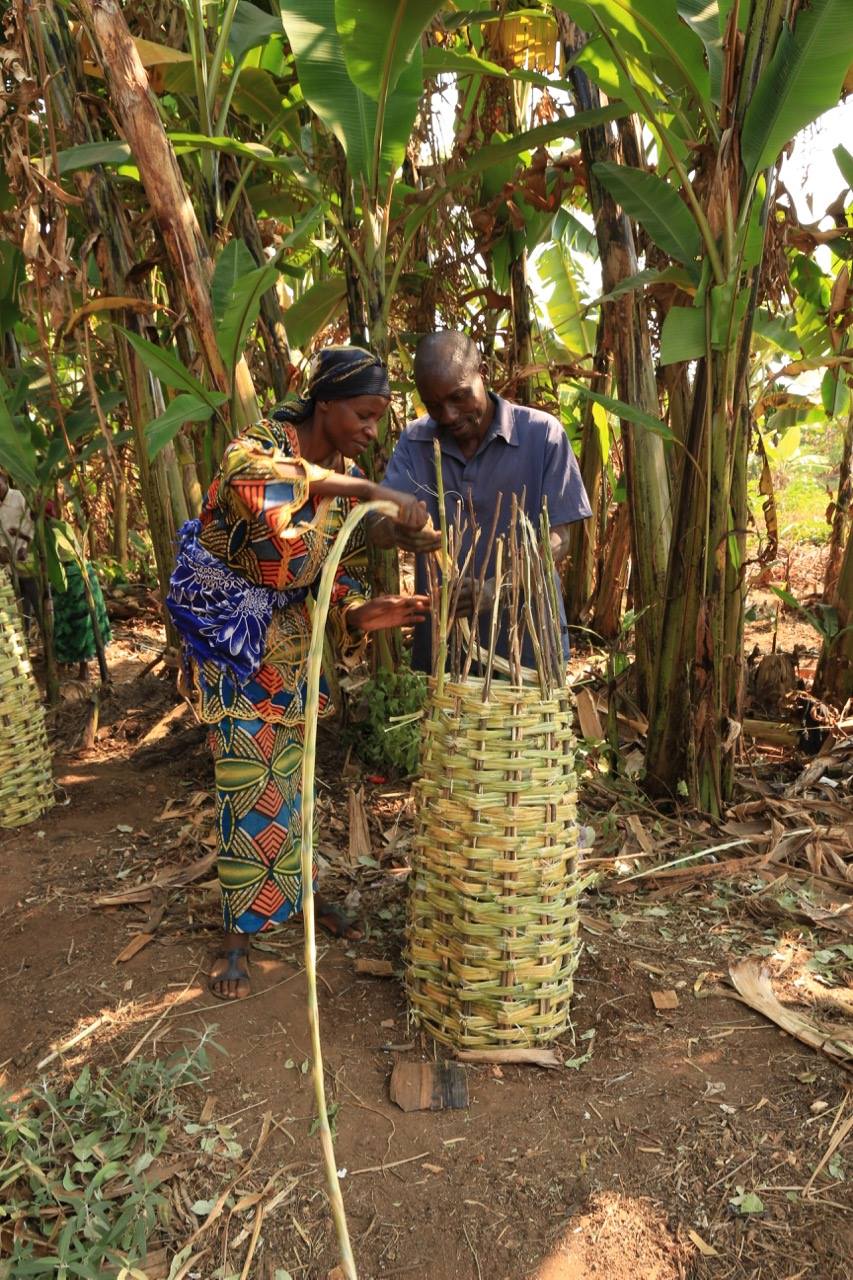Book your Experience Day below.
All are welcome- choose any day of the week! Groups of two or more adult guests: $90 per person; Children ages 5-15: visit for only $70 per child. Young children under 5: visit for free! Groups of 10 or more are eligible for a group discount. We offer special East Africa Resident rates as well! To learn more, please email us at experiences@azizilife.com.
Your visit makes a difference! In addition to a fair wage for your hosts, 5% of your entire payment is donated to Impact projects.
Become part of a beekeeping cooperative for the day. The Azizi Life Experience morning begins with a drive to a nearby village, where you and your Azizi Life interpreter will be welcomed by the men and ladies of the cooperative.
After introductions from your hostess, a morning of family chores begins. You collect water from the valley spring, prepare the fire for candle dipping and gather the materials and learn how to make your own traditional beehive.
At noontime, you’ll share a simple local meal with your host family, with plenty of time to chat and learn about each other’s lives. After lunch, you will join with the artisan cooperative for an afternoon of candle making. You will learn how to prepare the wax, and then the artisans will teach you how to dip your own pair of bees wax candles that you get to take home with you. You will love working with the artisans as you dip and laugh together.
The day finishes back at the Azizi Life office, with a cold Fanta and a chance to think back over the highlights of the day. There you can browse through some of the beautiful crafts made by the Azizi Life artisans and do a little fair trade shopping.
To book your own Experience and spend a day becoming a traditional Rwandan hive maker & candle dipper:
- Who is Coming? Choose your adult guests.
- Choose the number of adult guests coming.
- Select Add to Cart.
- Repeat this process for each age group of guests.
- At checkout in the comments section please put the date you would will visit.
Coming with young children? Kids under 5 join in for free! Just let us know in the Notes section of your checkout. We love including toddlers and little ones in the day and even have specialist facilitators.
For discounts on groups of more than 9 guests, or if you would simply like a bit more information, please do not hesitate to email us on experiences@azizilife.com or call us in Rwanda on +250-7858-1146.
This Experience starts from Azizi Life’s office & boutique in Byimana, Ruhango (about one and a half hours drive from Kigali). We would be happy to help arrange transport to Azizi Life Ruhango and so if you need that, just let us know.


Reviews
There are no reviews yet.